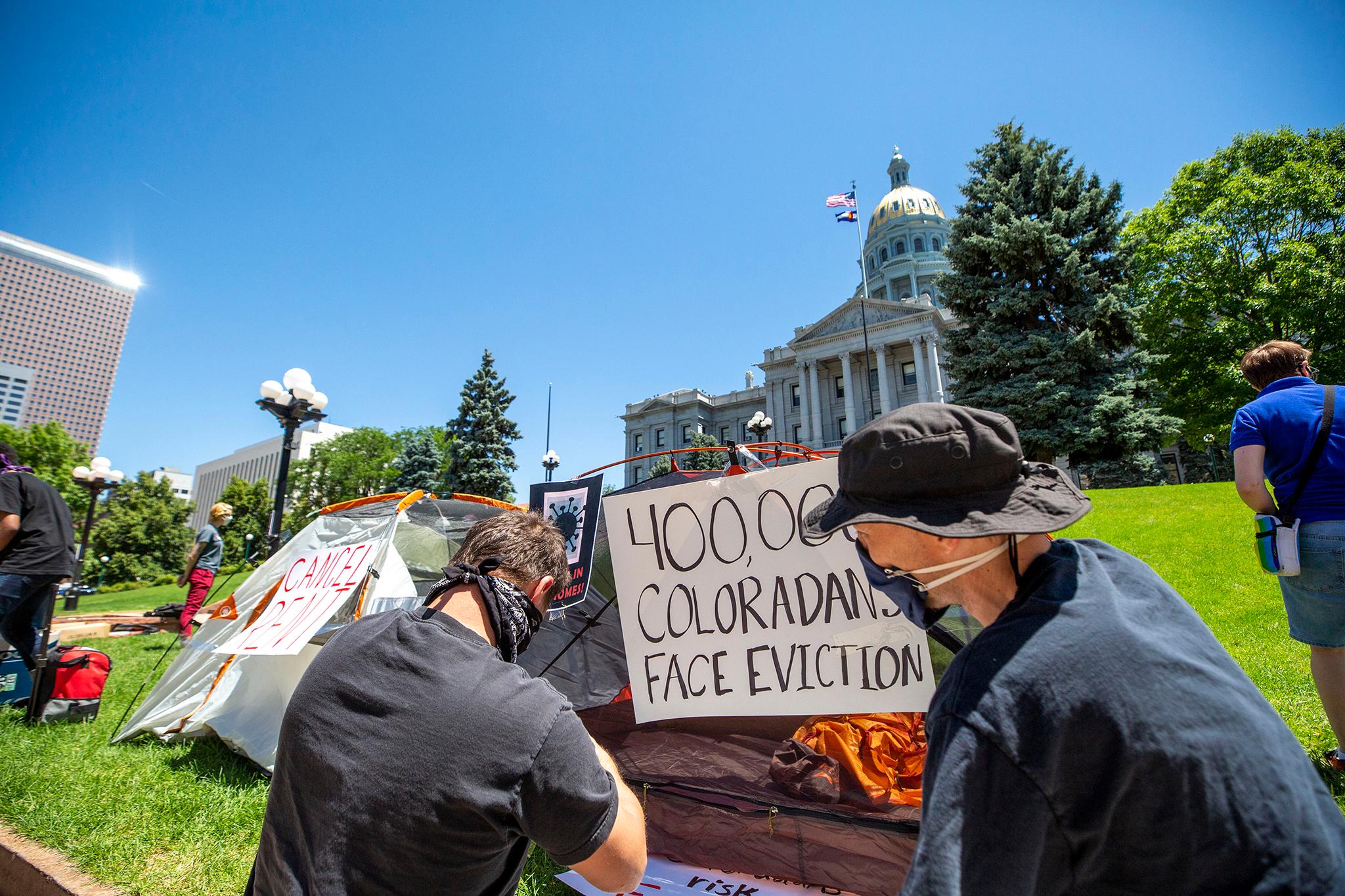The grassroots Denver group No Eviction Without Representation, or NEWR Denver, put this measure on the November ballot. If voters say yes, it would create a program so that all tenants facing eviction could receive free legal representation. While Denver already has a program in place to pay for free legal counsel for people facing eviction who make less than 80 percent of the area median income, or $105,500 for a family of three, this would expand that right to everybody. The program would be funded by a tax increase of $75 on landlords per property they own.
Here's the language you'll see on the ballot.
Shall the City of Denver's taxes be increased annually by eleven million, nine hundred eighty six thousand eight hundred and seventy-five dollars ($11,986,875.00) (first full fiscal year increase), and by whatever additional amounts are raised annually thereafter from an excise tax to be paid by landlords on each individual residential property held out for lease in the amount of $75 per year per such property, with the tax rate increasing every year thereafter at a rate that does not exceed the Colorado Consumer Price Index;
And in connection therewith, shall all of the revenues collected be used to fund:
- The administrative cost of the tax, and thereafter to
- Establish, run and fully fund a program to provide legal representation to tenants who face to the loss of housing in eviction and administrative proceedings;
- Provide a tenant's legal services and assistance coordinator to administer the program;
- Create a tenants' committee comprised of seven members paid a $1,000 per year stipend; and shall the full proceeds of such taxes at such rates and any earnings thereon be collected, retained, and spent, as a voter-approved revenue change without limitation or condition, and without limiting the collection, retention, or spending of any other revenues or funds by the City of Denver under Article X Section 20 of the Colorado Constitution or any other law?
Here's how it would work.
Landlords would be taxed an annual $75 per property they own, raising $11,986,875 in the first year. The tax rate would be increased every year, and the amount would be based on the Colorado Consumer Price Index. That's a measurement provided by the U.S. Bureau of Labor Statistics of how much the average prices of things change in a metro area.
The money raised would go to creating and funding a program that would give legal aid to people who are in the process of being kicked out of their homes by their landlords. That would fund legal services for the tenants and pay someone to coordinate the program. This measure would also create a seven-member tenants' committee. Members would receive $1,000 a year for their work on the program.
If more is collected than is spent, the money could go into the city's general fund.
Here's who's for it and against it.
The group No Eviction Without Representation argues that thousands of residents are evicted each year. When proceedings begin, if tenants don't have legal help, their chances of losing their homes rise dramatically.
The bill, as NEWR pitches it, is designed to stop homelessness by keeping people in the places they live, even when their landlords are trying to push them out. While the vast majority of landlords have lawyers when processing an eviction, most tenants do not, and as the group sees it, that is fundamentally unfair. Just like defendants in criminal cases have the right to an attorney, so should people facing evictions.
A broad coalition of neighborhood groups, progressive nonprofits, churches and even pro-development organizations support it. The American Civil Liberties Union, the Democratic Socialists of America, the 9 to 5 National Association of Women, the Colorado COVID-19 Eviction Defense Project, the Colorado Cross Disability Coalition, the Colorado Poverty Law Project, the Communication Workers of America Colorado and Wyoming States Council, the East Colfax Community Collective, the East Colfax Neighborhood Association, the Globeville Elyria-Swansea Coalition, Indivisible CO, the May Day Club, the National Coalition for Civil Right to Counsel, New Era Colorado, Westwood Unidos, Park Hill United Methodist, the United Campus Workers, and the Working Famlies Party have all endorsed this initiative, and the pro-growth group YIMBY Denver have all endorsed I-305.
As of August, there were no committees that are formally opposing I-305, though the Colorado Apartment Association's Vice President Drew Hamrick has spoken against it, arguing it would have an inflationary effect on the economy.
The conservative-leaning nonpartisan Common Sense Institute acknowledged that legal defense for tenants could reduce homelessness and associated costs. But the group argues the measure would raise more money than would be needed to provide universal eviction defense. The city already offers eviction defense services and rent and utility payment aid to people who income-qualify, making this measure redundant.
"Designing a new program that helps renters without hurting landlords is difficult given most landlords are individuals who have their own mortgage and property tax obligations," the Common Sense Institute wrote in a position paper. "At a time when rents are skyrocketing and housing deficits are impacting the availability of rental units, the ordinance measure only will increase the rental costs for tenants as well as administrative costs for landlords."













